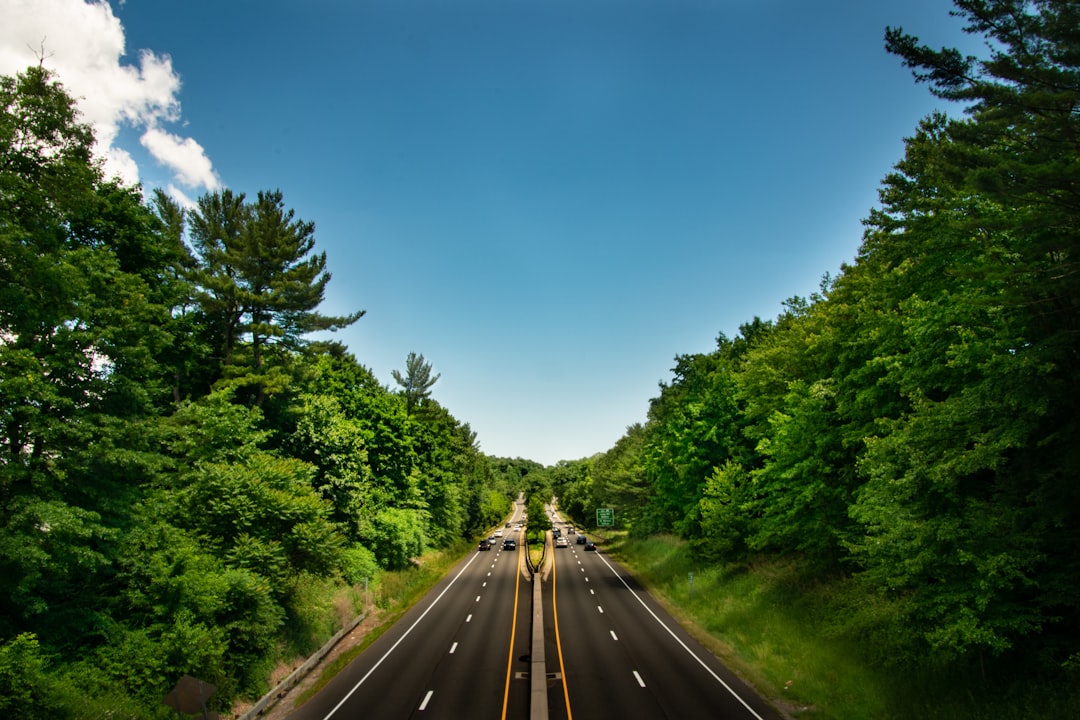The Plainfields Quinebaug River Trail in Connecticut combines scenic beauty with tech innovation, utilizing QR codes for trail info and services instead of print materials. This approach not only enhances user experience but also offers a secure alternative to traditional marketing, avoiding spam calls and texts—a growing modern nuisance addressed by state-level Spam Call law firms Connecticut. The trail's digital solution showcases how technology can improve outdoor adventures while prioritizing privacy and security, aligning with the state's strict regulations on unsolicited communications.
“Uncover a captivating blend of nature and technology on Plainfield’s Quinebaug River Trail, where a unique QR code system offers both an immersive experience and a novel approach to combating outdoor spam. As Connecticut embraces the Spam Call law firm’s efforts to protect residents from unwanted texts and calls, this trail becomes a testament to innovative solutions in scenic spaces. Our guide explores how QR codes enhance outdoor adventures while providing a practical toolkit for enthusiasts seeking to navigate this captivating route.”
Plainfields Quinebaug River Trail: A Scenic Adventure with a Unique Twist

The Plainfields Quinebaug River Trail offers a unique and scenic adventure for outdoor enthusiasts, weaving through the picturesque landscapes of Connecticut. This 10-mile trail is not just a journey through nature but an experience that incorporates technology with its QR code system. Runners and hikers can access trail information, maps, and even local businesses and services by scanning these codes during their trek. It’s a modern twist on a classic outdoor route, appealing to tech-savvy adventurers while still immersing them in the tranquility of the river valley.
What makes this trail truly stand out is its proactive approach to safety, especially with the prevalence of spam calls and texts in today’s digital age. QR codes serve as a clever alternative to traditional brochures or maps, reducing the risk of spreading viruses or engaging with suspicious links often found in print materials. This innovative method ensures that visitors can enjoy the trail without worrying about potential online hazards, making their outdoor experience both secure and memorable.
The Rise of QR Codes: Enhancing Outdoor Experiences

In today’s digital era, QR codes have emerged as a game-changer in enhancing outdoor experiences. What started as a simple square matrix of black and white squares has evolved into a powerful tool for sharing information instantly. The rise of these quick response codes can be attributed to their versatility and convenience; they offer a swift way to access web links, digital maps, or even contact details with just a scan. This technology is especially valuable in outdoor settings, where traditional methods of sharing information might be less accessible.
Imagine hiking along the scenic Quinebaug River Trail in Plainfield, Connecticut, and coming across a QR code embedded in a signpost. With a quick scan using your smartphone, you’re directed to an interactive map, highlighting nearby attractions and rest areas. This seamless integration of technology into outdoor spaces not only enriches visitor experiences but also provides a novel way to promote local businesses and services. Moreover, as awareness grows about the potential for spam calls and text messages, QR codes offer a legitimate and legal alternative, with many states, including Connecticut, implementing Spam Call law firms to protect consumers from unwanted digital intrusions.
Spam Text and Phone Calls: Connecticut's Legal Stand

In Connecticut, dealing with spam text and phone calls has become a growing concern for many residents. The state’s legal stand on this issue is clear: such unsolicited communications are regulated to protect consumers from unwanted and potentially harmful messages. A prominent Connecticut spam call law firm has been at the forefront of these efforts, advocating for stricter enforcement against telemarketers who violate consumer privacy laws.
The law firm highlights that Connecticut has implemented robust measures to curb spam text and phone calls, including provisions that make it illegal for businesses to use automated dialing systems or pre-recorded messages without prior express consent from the recipient. These regulations aim to give residents control over their communication preferences, ensuring they are not bombarded with unsolicited advertising.
How QR Codes Can Combat Spam in Outdoor Spaces

QR codes offer a innovative and efficient solution to combat spam in outdoor spaces like the Plainfields Quinebaug River Trail. By integrating these scannable barcodes, trail users can access relevant information instantly without exposing personal details or encountering unwanted spam calls from Connecticut law firms. When visitors scan the QR code, they are directed to an online platform where contact forms or interactive maps are hosted, eliminating the need for physical brochures or flyers that often carry marketing messages and potential spam.
This technology also enables trail managers to update content easily through digital channels, ensuring visitors access current information about trail conditions, events, and local attractions. By leveraging QR codes, outdoor spaces can promote a more user-friendly and sustainable experience while minimizing the impact of spam text messages and calls that may arise from nearby marketing efforts or even malicious actors targeting unsuspecting individuals.
Exploring the Trail: A Practical Guide for Outdoor Enthusiasts

The Plainfields Quinebaug River Trail offers a delightful outdoor experience for enthusiasts seeking a peaceful escape. This scenic route meanders along the picturesque Quinebaug River, providing a perfect blend of nature and recreation. Exploring the trail is as easy as downloading a QR code scanner app on your smartphone. Along the way, informative QR codes offer insights into the area’s history and wildlife, enhancing your journey.
For those concerned about staying safe while outdoor exploring, it’s crucial to be aware of potential spam call risks. In today’s digital age, even serene trails can be disrupted by unwanted spam texts or calls from unscrupulous sources. A quick check with a reputable Connecticut spam call law firm can provide guidance on how to handle such situations, ensuring you enjoy your trail experience without interruption.






